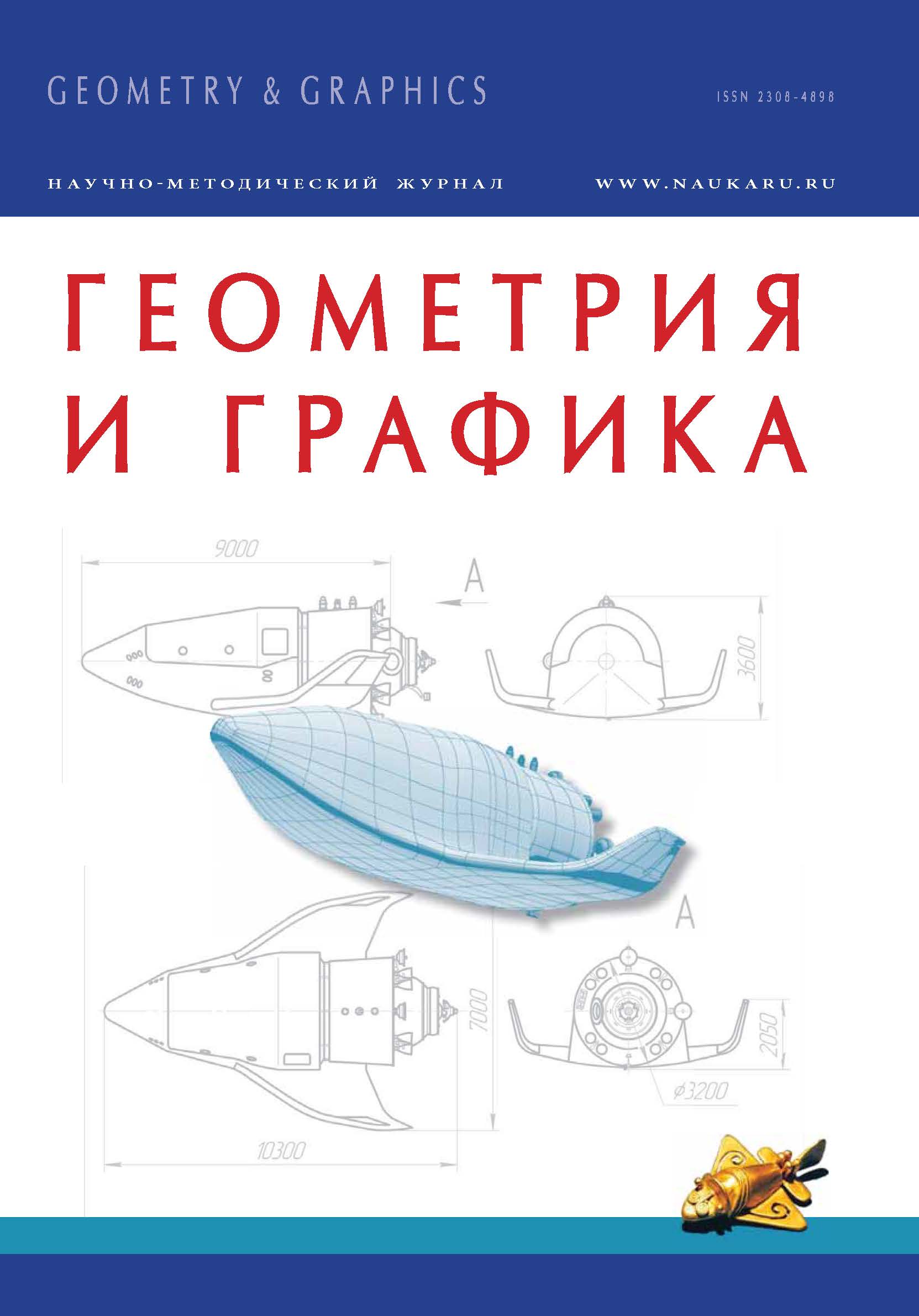from 01.10.2008 until now
Russian Federation
The introduction of distance education in Russian universities started in the nineties of the last century; the reason being the rapid development of science with a huge flow of information, lack of teachers, reducing working hours and the rapid development of computer technology, which led to the inevitable, especially after the appearance of graphics systems. This created a contradiction between the increasing avalanche of information, number of teachers, skimpystudy hours and Bachelors’ quality. The results of experiments classes "on distance" are provided. Conclusion: the lectures did not have the desired effect. For example, there was no visual feedback. It is impossible to administer a reproof to a student, or to understand, whether he/she follows the course of reasoning or simply marks the presence, etc. Professor A.V. Pavlov paid special attention to the connection of the lecturer with the audience: "you Should look into the eyes of each and every student so that he knows you tell all that it just for him!" Testing conducted by Federal Service for Accreditation transformed from voluntary to mandatory. In 2007 analysing fepo.ru tests on "descriptive geometry" for constructors brought up the conclusion that the tests cannot be used because of poor drafting. Compiling tests must be carried out with great responsibility by a group of professionals and reviewed by several experts in the field. Remote training and test exams are applicable for: 1) students with disabilities, 2) military men, 3) citizens living in distant regions of our country, 4) foreigners, 5) additional training and self-assessment, preparation for examinations and tests(elements of distanceeducation and testing). For other categories of students training must remain largely traditional. Computers can´t replace a teacher: no research work has proven that the removal of the teacher from the learning process can improve the quality of education.
pedagogy, distance learning, testing, descriptive geometry, engineering graphics, training quality.
При переходе на новые методы обучения
нельзя умалять решающей роли преподавателя
и его влияния на студента на всех этапах
учебно-воспитательной работы.
Академик Н.Ф. Четверухин
1. Дистанционное образование
О дистанционном обучении писалось много статей [1; 3; 4; 6; 9], защищались диссертации [2]. Введение дистанционного обучения в российских вузах имело начало в 90-х гг. прошлого века. Из причин возникновения дистанционного образования в России можно упомянуть:
- быстрое развитие науки с огромным потоком новой информации;
- нехватку преподавателей (скажем, просто бегство молодых кадров из вузов) при увеличении в то же время количества студентов;
- уменьшение присутственных учебных часов;
- необыкновенно бурное развитие компьютерных технологий, приведшее к неизбежному их применению, особенно после появления графических систем.
Все это создало противоречие между лавинообразно увеличивающейся информацией, количеством преподавателей, куцым объемом часов и качеством бакалавров на выходе.
1. Bojkov A.A. Komp´juternye sredstva podderzhki uchebnyh kursov graficheskih discipline [Computer support tools training courses graphic disciplines]. Geometrija i grafika [Geometry and graphics]. 2013, v. 1, i. 2, pp. 29-30. DOI:https://doi.org/10.12737/784.
2. Botya M.V. Metodicheskie osnovy ispol´zovaniya intranet seti pri izuchenii nachertatel´noy geometrii na khudozhestvennograficheskikh fakul´tetakh pedagogicheskikh vuzov. Kand. Diss. [Methodological basis for the use of the intranet network with the ISA-treatment descriptive geometry graphic faculties PE-teacher schools. Cand. Diss.]. Moscow, 2005.
3. Dolottseva E.D., Salkov N.N. Distantsionnoe obuchenie gradostroiteley [Distance learning urban planners]. Gorod i ekologicheskaya rekonstruktsiya zhilishchno-kommunal´nogo kompleksa XX veka. Chetvertaya Mezhdunarodnaya nauchnoprakticheskaya konferentsiya 5-6 aprelya 2006 g. [Town and ecological reconstruction of housing and communal complex of the XXI century. Fourth international scientific-practical conference 5-6 AP-April 2006]. Moscow, MIKKhiS Publ., 2006, pp. 230-232. (in Russian)
4. Zhilkina T.A., Matusevich V.Ya. Opyt ispol´zovaniya distantsionnogo obucheniya pri prepodavanii graficheskikh distsiplin dlya studentov inzhenernykh stroitel´nykh i ekonomicheskikh spetsial´nostey [Experience in the use of distance learning in the teaching of graphic disciplines for students of construction engineering and economic specialties]. Geometriya i grafika [Geometry and graphics]. 2013, v. 1, i. 3-4, pp. 29-32. DOI:https://doi.org/10.12737/2129. (in Russian)
5. Kostomarov N.I. Istoricheskie monografii i issledovaniya [Historical monographs and studies]. Moscow, Kniga Publ., 1989.
6. Matusevich V.Ya., Salkov N.A. Sistema distantsionnogo obrazovaniya i geometro-graficheskie distsipliny [System of distance education, geometro-graphic disciplines]. Geometriya i grafika [Geometry and graphics]. 2013, v. 1, i. 1, pp. 54-55.
7. Salkov A.V., Salkov N.A. O neobkhodimosti sozdaniya tsentrov samopodgotovki studentov [On the necessity of creating centers of self-preparation of students]. Krivoy Rog, 1984. (in Russian)
8. Salkov N.A. Sozdanie obuchayushchikh tsentrov na osnove komp´yuternykh laboratoriy [The Establishment of training centres on the basis of computer laboratories]. Problemy modernizatsii zastroyki i obnovleniya zhiloy sredy gorodov. Materialy nauchno-prakticheskoy konferentsii studentov i prepodavateley institute [Problems of modernization construction and renovation of residential environment of cities. Proceedings of the conference of students and teachers of the institute]. Moscow, MIKKhiS Publ., 2002, pp. 134-135. (in Russian)
9. Salkov N.A. Plyusy i minusy distantsionnogo obucheniya i testirovaniya kak ekzamena [The pros and cons of distance learning and testing as exam]. Sbornik trudov Vserossiyskoy nauchno-metodicheskoy konferentsii po inzhenernoy geometrii i komp´yuternoy grafike. Chast´ 1 [Collection of works of the All-Russian Scientific Conference on Engineering geometry and computer graphics. Part 1]. Moscow, MITKhT Publ., 2008, pp. 16-21. (in Russian)
10. Salkov N.A., Vyshnepolskiy V.I., Kadykov N.S., Beglov I.A. i dr. Bol´she testirovaniya - men´she obrazovaniya [More testing - less education]. Sbornik trudov Vserossiyskoy nauchno-metodicheskoy konferentsii po inzhenernoy geometrii i komp´yuternoy grafike. Chast´ 2 [Collection of works of the All-Russian Scientific Conference on Engineering geometry and computer graphics. Part 2]. Moscow, MITKhT Publ., 2008, pp. 27-29. (in Russian)
11. Chetverukhin N.F. O programmnom obuchenii i ego primenenii v kurse nachertatel´noy geometrii [About software training and its application in the course of descriptive geometry]. Materialy II nauchno-metodicheskoy konferentsii po nachertatel´noy geometrii i inzhenernoy grafike kafedr vuzov UzSSR [Materials II Scientific Conference on descriptive geometry and engineering graphics departments of universities UzSSR]. I. 60. Tashkent, «FAN» Publ., 1968, pp. 13-16. (in Russian)






